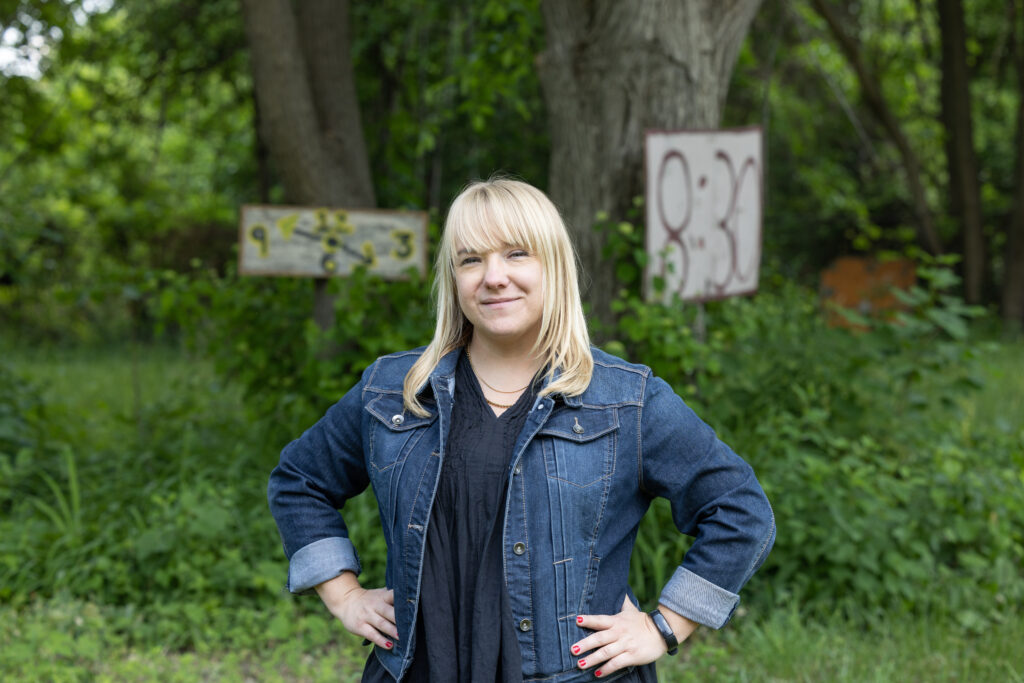The trust she has built has allowed Lisa DuRussel to integrate her deep connections into the projects she designs for her students. She says that these projects tend to attract SEAS students who are interested in both community engagement and the questions surrounding the future of vacant land in Detroit.
-
July 21, 2023
Lecturer helps families navigate losing loved ones
Darcy Brandel, a lecturer in creative writing in the Residential College and with U-M’s Semester in Detroit program, has worked as an end-of-life doula, also referred to as a “death doula,” for more than three years.
-
July 17, 2023
Concert of Colors: Celebrating the 50th anniversary of hip hop
The event kick-offs the Wolverine Outdoor Stage as part of the 31st Annual Concert of Colors that honors the diversity in Metro Detroit through music, food, and art, this Saturday to Sunday at the Detroit Institute of Arts south lawn.
-
July 14, 2023
Poverty Solutions research assistants support groups advancing Detroit financial well-being projects
The Detroit Financial Well-Being Innovation Challenge brought teams together at a showcase event this spring hosted by GreenLight Fund at Durfee Innovation Society. The five-year challenge that launched in February 2022 is run by United Way for Southeastern Michigan in partnership with the University of Michigan’s Poverty Solutions.
-
July 11, 2023
Engaging students in math, U-M’s TeachingWorks lab will be offered in Detroit this month
For the first time in its 16-year history, the Elementary Mathematics Laboratory, a program tailored for teachers, education leaders and researchers, will be held at The School at Marygrove in Detroit. The week-long classes, July 24-28, will be hosted by TeachingWorks, a center at the University of Michigan’s Marsal Family School of Education dedicated to harnessing the power of teaching to create a more just society.
-
July 10, 2023
Harvesting electronic waste for the African Bead Museum
Recently, a group of Stamps students led by Professor Ron Eglash harvested electronic waste from household appliances to create jewelry for the African Bead Museum.
-
July 7, 2023
Identifying air pollution sources in Southwest Detroit
Michigan Public Health researchers sought to identify the major sources of particulate matter (PM2.5) in Southwest Detroit, using data collected over six years (2016-2021) to contrast with previous data collected from 2001-2014.
-
July 6, 2023
How 30,000 Detroit trees bloomed into a better way for researchers to predict airborne pollen
Working with aerial and satellite imagery and more than 30,000 trees in Detroit, researchers from the University of Michigan set out in 2017 to find a better way to measure pollen. By the time they wrapped up their research two years later, the researchers believed they had tested and proved a more precise and meaningful way to know when and where pollen will most likely affect allergy sufferers.
-
June 30, 2023
Detroit’s 16% unemployment rate driven by labor force rebounders
Sixteen percent of Detroit residents in the labor force were unemployed as of March 2023, according to the latest survey from the University of Michigan’s Detroit Metro Area Communities Study. The latest unemployment estimate essentially holds steady from the previous DMACS estimate in August 2022. Detroit’s unemployment peaked at 43% at the beginning of the COVID-19 pandemic and remains higher than the estimated pre-pandemic unemployment rate of 8%.


